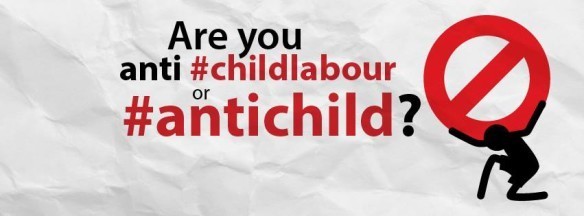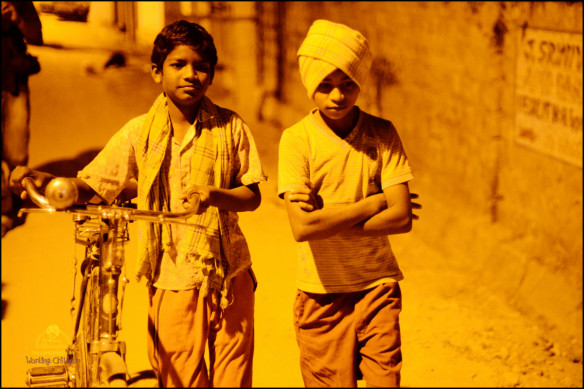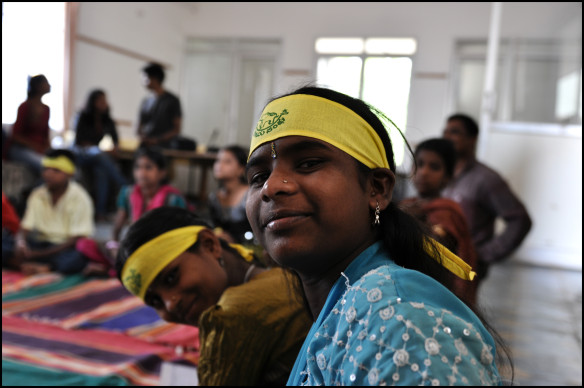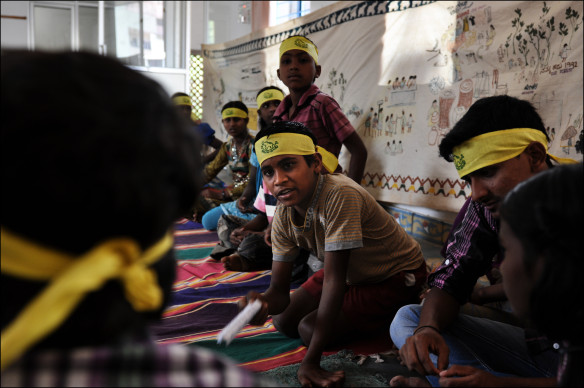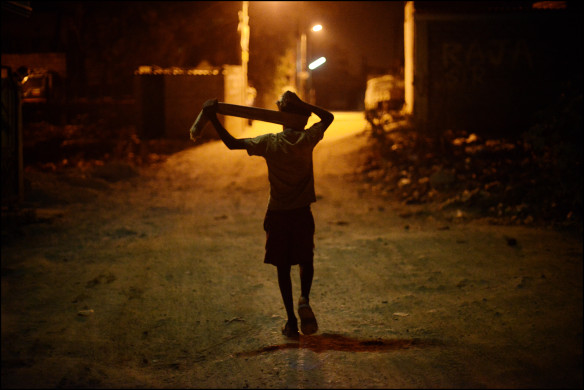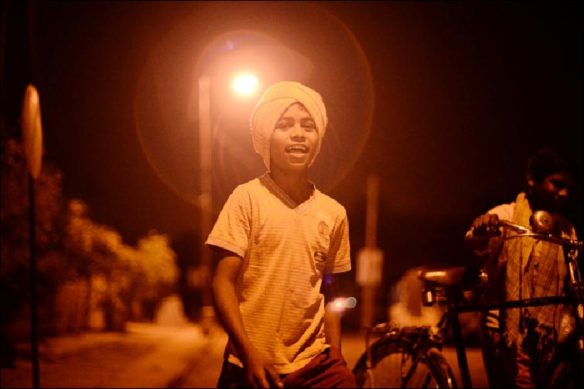Commemorating the National Child Labour Day, April 30th, 2019: Understanding why children work
Posted on April 30, 2019
Twenty-nine years ago in 1990, the Bhima Sangha, a union of working children, chose 30th April, the day before Labour Day, as Child Labour Day. This day was chosen to draw attention to the fact of their existence in the workforce, was invisibilised and thus they needed to highlight and call out their concerns. This was adopted by many working children’s unions, including the National Union of Working Children, in India in the 90s.
The first step they felt was to emerge from the fold of invisibility and assert their existence. Since then they have engaged through a multitude of creative ways on international, national and local forums to highlight their issues and bring out unique solutions. However, has the condition necessarily changed for the working child? What do they have to say about the challenges they face?
This year, as we launch the commemoration of the National Child Labour Day on April 30th, 2019, we call for a deeper reflection on all parameters of child labour. We ask you to move beyond the language and methodology of the ban and join the children in a conversation, a dialogue. Do follow us as together, we see and experience the world from their perspective.
It has been 33 years since the Child Labour (Prohibition and Regulation) Act, 1986 was passed. The recently Cabinet approved Child Labour Amendment Bill, 2012 continues further down its path of tightening prohibition and regulation with some exemptions. The Gurupadaswamy Committee, which informed the Child Labour Law in the 80s, asserted: “Extreme poverty, lack of opportunity for gainful employment and intermittency of income and low standards of living are the main reasons for the wide prevalence of child labour”. The Law was supposed to combine prohibition and regulation alongside a multiple policy approach to end hazardous child work.
Yet, as a community of practitioners, thirty years down the road we continue to see a large number of children undertaking work which is dangerous for them. In the name of ‘rescue’ our children are being subjected to extreme trauma and institutionalised with little or no option but to return to the same or more dangerous work on release. Figures from the Census, claimed to be dropping, tell us an incomplete truth of the number of children engaging in work. Education is being suggested as the simplistic solution to the ‘problem of child labour’ yet the Bill addresses in no manner the fact that the experience of institutionalized education for marginalized children has been far from positive.
Much has happened and changed since 1986. A larger more nuanced conversation around child work and rights has been building up internationally and nationally. To open these debates in the context of India and to get a glimpse into the discourse on a child labour law which is child rights-centric and informed by children’s experiences, the latest research on the Concerned For Working Children’s page – Are you anti #childlabour or #antichild?
http://www.concernedforworkingchildren.org/are-you-antichildlabour-or-antichild/
Forgotten on the Pyjama Trail -Fathima’s Story
The animated docu – drama ‘Forgotten on the Pyjama Trail’, based on a 1998 child employment study in Morocco, is an insight into what happens when a simplistic approach of a ‘ban’ is followed and how it affects the lives of the very children it claims to help.
The story explores the complex issue of child labour from the perspective of a 13-year-old garment maker in Morocco. Fathima, the fictional subject of the film, is an amalgamation of the experiences of several child workers at a pyjama-making factory documented by the Moroccan child employment study. Researchers followed the “pyjama trail” left behind by these young workers when they lost their jobs at the hands of foreign interveners. Fathima serves as a representative for millions of working children around the globe, whose opinions and experiences remain unacknowledged by the enactors of global, national and local child protection policy. The film exposes the systemic barriers that affect millions of child workers in developing nations and fuel their desire or need to join the workforce. The perspectives emphasized in Forgotten on the Pyjama Trail seek not to condone child labour, but rather to provide a contextual view of the issue that has been largely absent in the discourse and actions at every level – from the international agencies and instruments, national legislative assemblies to the classrooms, and dinner tables of the developed world.
Do write to us with your comments and feedback. And do share. If you haven’t seen our “Forgotten on the Pyjama Trail” film, here is the link: https://www.youtube.com/watch?v=Te1ttb33fsU
Taking Destiny in their Hands
“Taking Destiny in their Hands” is a docu-film that to visually documents the relevance of the International Movement of Working Children and the central themes that it addresses. It gives the viewers a rare opportunity to listen to children’s analysis of global problems, their strategies to overcome them and their call to adults and policy-makers to give them recognition as social actors. It provides an overview of the long process that organised working children’s movements of Africa, Asia and Latin America have undergone to create, initially, their own national and regional movements and then a united International Movement. It highlights the struggles and successes of their participation in the international policy-making arena. The ILO consultations in Amsterdam and Oslo; interactions with decision makers in Milan and Berlin are a few examples in the film that demonstrate how the members of the movement continue to make their voices heard despite tremendous challenges. Spanning three continents, and a period of over three decades, the film depicts how the similarities of the movements form their foundation and how their diversities bring rich nuances to their struggle. The title of the film has been quoted from the Mayor of Berlin, Harold Wolf’s address to the International Movement in Berlin, and reflects how adults and those in power are increasingly recognizing that there is much to be learnt from children’s protagonism and its impact on the society. Please do watch the film and tell us what you think. If you haven’t seen the film, here is the link: https://youtu.be/1oHndAnX1X8
Release of the Bhima Sangha manifesto
The Bhima Sangha (Working Children’s union) members from Udupi and Bellary made their voices as citizens of India heard and also laid out their vision for their own communities as well as for the larger nation by drafting and presenting their manifestoes to representatives from various political parties. The manifestoes from the Bhima Sangha member children originating from and working in fishing communities in Udupi as well as those from Bellary who are engaged in agricultural and domestic work have been duly received and acknowledged by members of the National parties such as the INC and the BJP. You can read more about the drafting and release of the Bhima Sangha manifesto here: http://www.concernedforworkingchildren.org/…/bhima-sangha-…/
Banned- Aid: Thepeya Thootugalu
Why do children work? How has the current child labour law, articulated through the partial ban, affected them? What happens to children during raids and after they are ‘rescued’ by the government? The docu-drama entitled ‘Banned-aid’ is a collaboration with members of the Bhima Sangha (Union of Working Children) to explore and respond to some of these important questions which currently remain unanswered. Moreover, Banned-Aid continues to highlight and counter the blanket ‘rescue’ and institutionalize approach adopted the government of Karnataka and governments of most other states of India, – an approach that rather than supporting the child’s constitutional rights, more often than not leaves an imprint of criminalization and punishment on the child.
The stories shared are real incidents as experienced by working children themselves. The enactment and voice-over have also been undertaken by the Sangha members. The docu-drama gives an important insight into why listening to children is non-negotiable to address child labour in the long-term and why policymakers and policy implementers should take children’s voices, opinions and experiences into consideration before designing and implementing ‘solutions’.
Watch the docu-drama in Kannada here: https://youtu.be/lIzf9I3OvzM
Watch the docu-drama in Hindi here: https://youtu.be/bo_a_YNBJfc
Should we rethink the ban on Child Labour? A podcast by BBC
The BBC World Service’s ‘The Inquiry’ segment “Should we rethink the ban on Child Labour?” throws light on the shifting discourse and emergent layered debates and thinking on the global blanket ban of child labour promoted by the ILO. Here, Kavita Ratna, Director of Advocacy and Fund-raising – CWC, has discussed CWC’s successful approaches that have helped address this complex issue of child labour and have provided viable models to the Indian scenario as well as for global applicability. In its introduction to the segment, BBC has stated the following: ‘Most countries in the world have signed up to the idea that no child should work at all under a certain age – but is this the best approach? This week Nicolle, a 17-year-old from Peru, has been part of a delegation of child labourers visiting the UN to ask them to rethink their ban on child labour. Some charities and experts working with child labourers agree that there are safe forms of child work. They say non-hazardous work can allow children to help their families, gain life skills, and even pay for the school uniforms and equipment they need to stay in education. But the UN and other former child labourers disagree, saying an outright ban is the only way to protect children from exploitation. We ask whether it’s time to rethink the ban on child labour’.
In the segment, the presenter also mentioned that, in fact, in making this programme they spoke to people from some of the world’s most respected NGOs, who criticised the ban in private but not in public. At CWC, we welcome this thought and dialogue provoking segment, which has contributors including Benjamin Smith – Senior Officer for Child Labour, International Labour Organisation, Jo Boyden – Professor of International Development, Oxford University, Zulema Lopez – former child labourer, along with Kavita Ratna. We sincerely hope it will contribute to a re-think on a problem that seems to have reached a sense of fatigue!
The programme is available as a podcast or on the BBC website: https://www.bbc.co.uk/programmes/w3cswqtw
